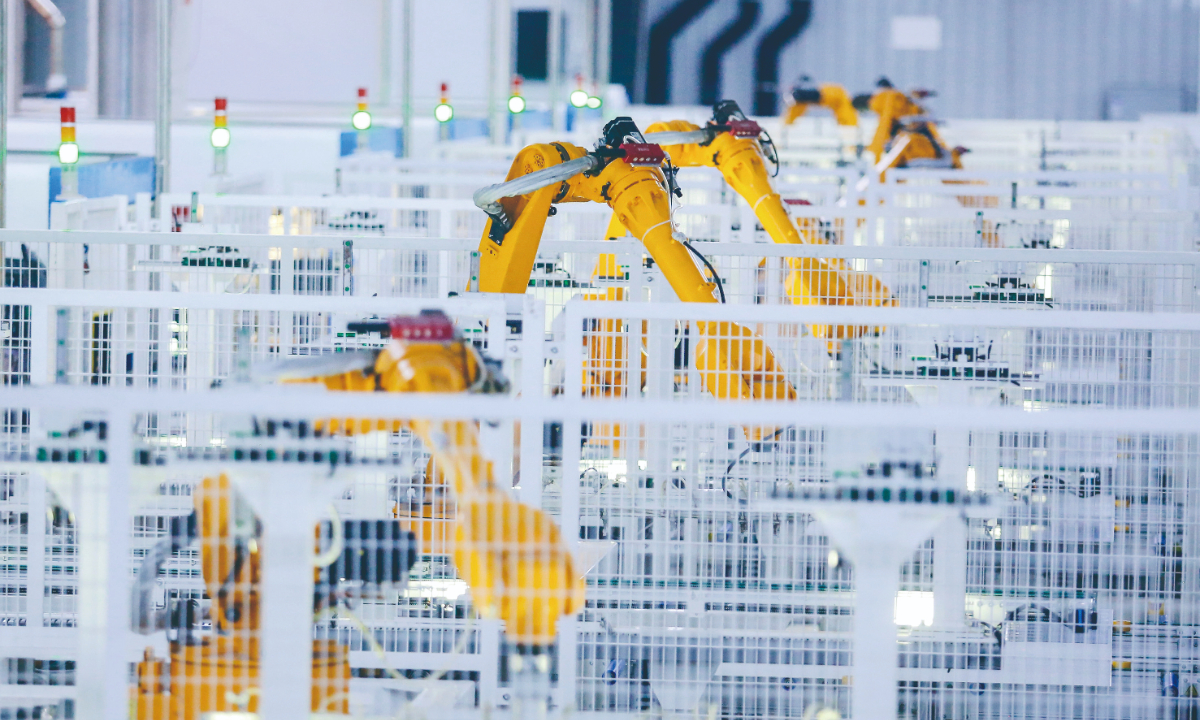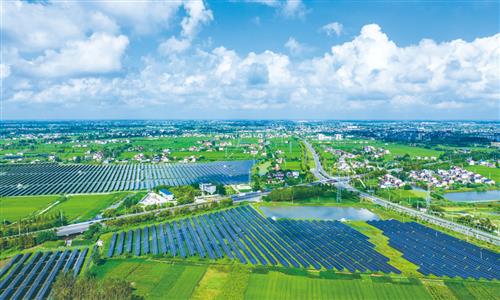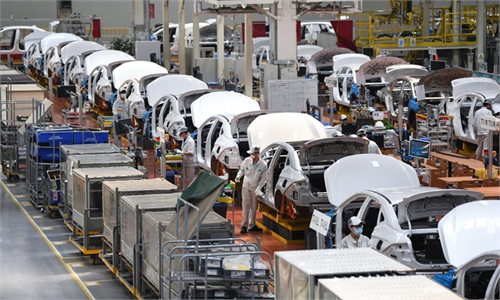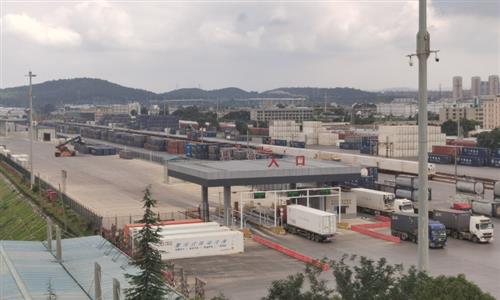

An intelligent production line of a photovoltaic enterprise in Yangzhou, East China’s Jiangsu Province Photo: VCG
In recent years, some Western politicians have intensified their rhetoric regarding "China's overcapacity." Meanwhile, some Western nations have embraced trade protectionism, imposing high tariffs on China's burgeoning green industries, such as new-energy vehicles (NEVs), photovoltaics and lithium batteries.
However, the strength of China's green industries stems from technological advancements, the clustering of industrial chains as well as robust domestic competition. As a matter of fact, the unfounded claim of "overcapacity" serves as a means to politicize and weaponize economic matters.
The development of China's green industries plays a crucial role in the global effort to combat climate change. China's industrial policies for green sectors adhere to the principle of competitive neutrality. In recent years, the policies have significantly driven the growth of the new-energy sector in China, while facilitating the development of new-energy industries in other countries too.
China was the key driver of the global decline in production cost for photovoltaics and wind turbines in 2022, with other markets experiencing a much more heterogeneous set of outcomes that saw costs increase, according to the report on Renewable Power Generation Costs in 2022, issued by the International Renewable Energy Agency.
From the perspective of sustainable development goals, global renewables production capacity still falls far short of market demand. In this context, China deserves recognition rather than criticism. The advancement of China's new-energy sectors has accelerated the global response to climate change, making it more efficient and less costly.
The issue of production capacity is a problem that arises amid the operation of the market. "Decoupling" and protectionist policies are not beneficial for resolving the issue. The US directly subsidizes domestic manufacturers through legislation such as the Inflation Reduction Act (IRA), while discriminating against foreign manufacturers.
The green industry evolution in China is characterized by free and fair competition, and the Chinese market is steadily transitioning toward a more mature development phase now.
According to data from the China Association of Automobile Manufacturers, from January to July 2024, China produced 5.9 million NEVs, a year-on-year increase of 28.8 percent. During the same period, sales reached 5.9 million units, up 31.1 percent year-on-year.
The academic community has long pointed out that in promoting the use of clean energy, subsidies are needed to reduce the costs of new technologies and decrease market reliance on old technologies.
Researches by some countries have found that developed countries tend to use industrial policies more intensively. Goldman Sachs estimates that fiscal spending related to the US IRA will amount to $1.2 trillion, a figure three times more than what supporters initially claimed, according to media reports.
China emphasizes the importance of addressing the capacity issue and actively takes measures to promote global coordination on this matter. China adheres to a cooperative approach, continuously optimizing macroeconomic policies and achieving global policy coordination to enhance global macroeconomic governance. This approach aims to achieve better interaction between China's economic development and global economic growth.
The dependencies formed by trade relations are mutual, as the world relies on the Chinese market, and China equally relies on the world market. A healthy international division of labor and economic cooperation provide the foundation for the global economy to achieve faster recovery.
Protectionist policies will only increase economic costs and decrease economic efficiency for all economies, which cannot promote the balance of supply and demand on the market.
The development of China's manufacturing sector provides opportunities for cooperative development for more developing countries. Countries should strengthen cooperation and enhance mutual trust to jointly tackle global challenges, rather than exaggerating "threats" and adding instability.
The author is assistant research fellow at Institute of World Economics and Politics, the Chinese Academy of Social Sciences (CASS). bizopinion@globaltimes.com.cn



